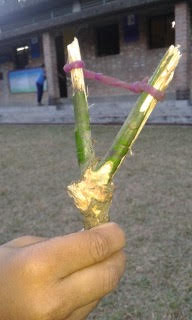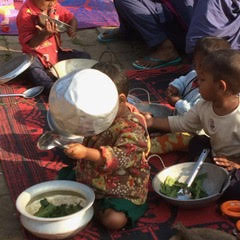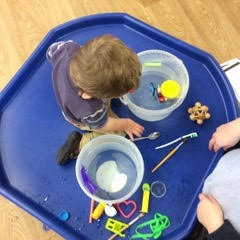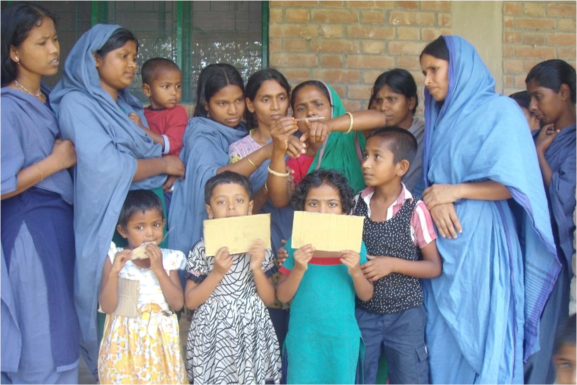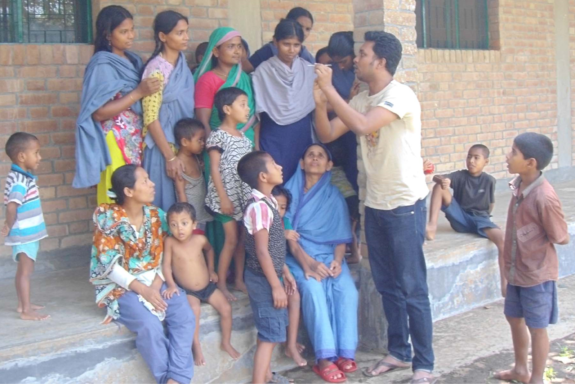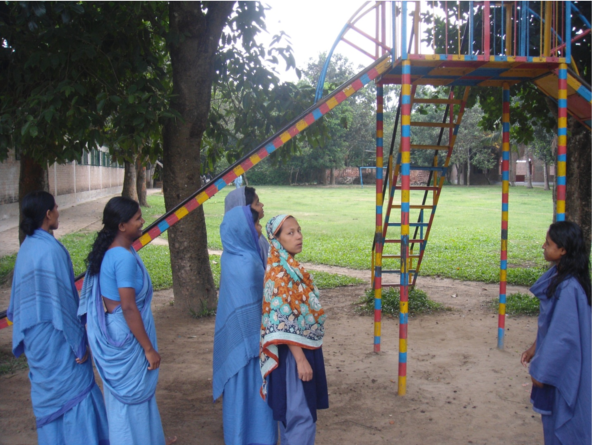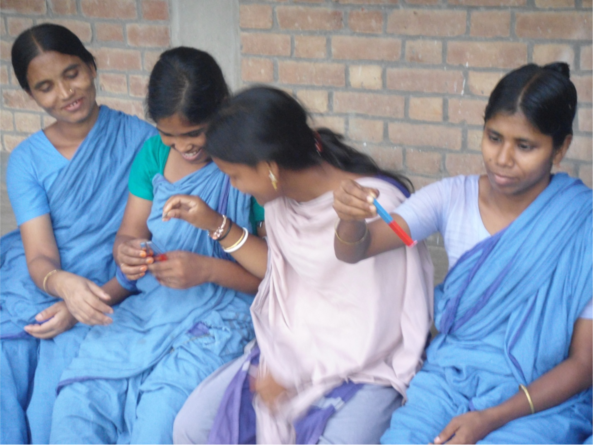Innovations by CASTME and Partners
CASTME Activity Sheet - No. 20 Topic: Communication 2
CASTME Activity Sheet - No. 19 —Topic - Communication
Activity sheet 15
Sheet 14
Interactive Activity for young children - Air
SDG Highlighted - SDG4 - Education
Sheet 13: Trees
Interactive Activity sheet b13 for young children
SDGs: Quality Education 4, Responsible Consumption 12, Climate action13, life
Activities Sheet 12 A
Separation - more Separation ideas
Sheet 12 - Separation
For other/previous Activity Sheets, see the Resources page of the website.
CASTME Partners
Slum and Urban Community Children Education Schooling Support (SUCCESS)
A project run by The Sreepur Village Bangladesh
We always try and reach as many children as we can and still children living in urban slums face barriers to accessing and remaining in school. These problems are made worse by very low family incomes, poor infrastructure, and high population density. To help augment the family’s income, children in urban slums often drop out of school to work as manual laborers, domestic workers doing household chores and care givers in own or other families. Parents, also, marry girls off at a young age -- early marriage of sometimes very young girls is a big problem in the slum. In January 2018 we started an Urban Street Children Programme at our Dhaka Office in Nikunja. We use the first floor for a Street Girls Night Shelter and Slum and Urban Community Children Education Schooling Support (SUCCESS) Project. We need to continue this project for underprivileged children who drop out of education. We stopped this project during Covid as schools were closed but have now re-opened it.
This year (from November 2021) 50, local, slum-based 2nd category street children (who have family/extended family in the slum) have been enrolled with the SUCCESS project with primary level school admission in Nikunja and Khilkhet. Non-school going and those children who have dropped out of school are eligible if they fit the following criteria: from local slum families with limited incomes, 8 years old or above. The support covers Classes One to Five. In December we conducted a survey of the slum children and made selection using the above criteria.
We monitor their school and education progress closely and liaise with the teachers as well as the families. We meet parents and teachers quarterly at our office and discuss children’s achievements and find out the way to improve their education. We also inspect the school attendance registers. If children drop out of school, and despite our efforts, do not re-join, the families no longer get money or support. Luckily the programme is valued, and dropouts are very rare.
We provide the parents of children in the programme financial support -- Bangladeshi Taka (BDT) 700 for one child and 1200 for 2 children (from the same family) per month - whilst the children are attending school. This is substantially less than the children would earn but is enough for the parents to keep the children in school. Learning materials such as books, school bags, paper and pens are provided by the project. We also have a Toy Resource Centre which is open for the SUCCEESS children (only) on every school day, from 2pm until 4pm. We provide supervised homework, access to board games, a carrom board, TV etc. On an average, 30 children attend regularly. The children benefit from this supported space as there are no play areas for children living in urban slums. We monitor the children by visiting their schools and record attendance. The gender ratio of children who are enrolled with SUCCESS project is 50/50 but we ensure we reach out to girl children. We plan to extend this support up to year eight particularly to girls.
The entire objective of the project is to ensure at least a primary education for children who would otherwise not receive any schooling.
There are potential future developments such as supporting girls in education for longer if the donor agrees.
Project outcomes address UN Sustainable Development Goal 4 (Quality Education) and meet the Target 4.5.
Details submitted by
Subrata Chowdhury, MSS (Sociology), MBA, MDS
Staff Consultant-Fundraising and Donor Liaison
The Sreepur Village, Bangladesh
+880 1755634726 |+88-02-4895-3308|Email: subrata@sppbd.org,
skype:subrata898
{with editorial input by
Melanie Wolfson, Trust Fundraiser,
The Sreepur Village, Bangladesh (UK Charity no. 1085008)]
Update: 31 Jan 2022
A New Year - A New App
(from the January 2022 Newsletter)
New Year's Resolutions, New Goals, New Ideas and New Challenges.
We are all familiar with setting new goals every year and this year as The Sreepur Village enters it's 33rd year we are delighted to share with you our new colourful logo, as seen above, and some very exciting new ways of transforming the future lives of our mothers and their children, their families and their communities.
. It was because of you, our generous supporters and The Coles-Medlock Foundation (our Big Give Champion Funder), that we were able to raise above our £30,000 target during our 2021 Big Give Christmas Appeal. We truly appreciate this most generous amount and it will be used to train our mothers in traditional and digital literacy through using our app.
We were also honoured that a private donor in the UK donated £5,000 to help us develop the app in 2020. We are also truly thankful that "Echology", the app development company, donated a further £1,700 to complete the app development in 2021.
…
When the world was in lockdown for well over a year and emphasis was put on everything DIGITAL be it home school learning, online counselling, a doctors appointment, or a business meeting, The Sreepur Village realised how having a digital presence in the form of an App could have a bigger impact on transforming the lives of not only the mothers living in the village but for thousands of other mothers and women in rural villages who, without access to technology, could easily be excluded and left behind.
Why Introduce an App?
By updating our logo and introducing an App our priorities haven't changed, we still believe poverty should not tear children from their mothers and in doing so provide mothers and their children with the Sreepur Village, the place that they call home for three years and where they are equipped with life-saving skills, income-generating activities and where their lives are transformed with equal opportunities for the future.
You could say the Sreepur App will be an extension of the village in that it will expand on what our mothers have accomplished and continue to help them remotely access support in vocational skills like sack gardening, weaving and tailoring .
Our Sreepur App will also enable mothers to manage their mobile banking, having to avoid leaving money at home or travelling miles to the nearest bank. With access to the App mothers can receive online educational tools for distance learning as well as healthcare advice, things that we often take for granted but for single mothers living in rural Bangladesh these are more than often financially inaccessible or too far to access from a remote village,
By launching a Sreepur App we will be able to help reach and transform the lives of many more women in underprivileged isolated communities which is vital during a pandemic
such as COVID-19.
Society of Biology, Mauritius
CASTME appreciates this ‘present’ for 2022
Submitted by Ellora Dhunnoo, President
Want to help build a society aware of health and environmental issues? Come and join us!
Watch the video:
Leave a message on Facebook or email secretary.sob@gmail.com
Mauritius — Model Glider Competition 2021
Rajiv Gandhi Science Centre
The Model Glider Competition stems from the fruitful collaboration between the Rajiv Gandhi Science Centre (RGSC) and the Aeronautical Society of Mauritius (AeSM). The aim of the Model Glider Competition is to enable secondary schools’ students to use science process skills to explore ideas, design concepts and techniques in aviation through practical application of the basic principles of aerodynamics. This engaging aeromodelling contest was initiated in 2016 under the impulse of both the RGSC and one of the founding members of the AeSM, late Captain Richard Twomey. 2021 marks the 6th edition of the Model Glider Competition. The objectives of the Competition comprise of:
1. Enabling students to develop, construct and fly their own model gliders.
2. Encouraging students to explore ideas and come up with solutions by working in teams.
3. Developing creativity and innovation among young people.
4. Giving students the opportunity to participate in fun activities related to Science and Technology.
The registration for the Model Glider Competition 2021 was opened to all secondary schools in Mauritius on 14th July 2021. Each school could register a team of four students under the guidance of one supervising teacher in two different categories. 49 teams registered by the deadline of 28th July 2021.
Following the registration, the participants were invited to an online workshop held on the 10th August 2021. During the workshop, the design and construction of the model gliders were explained and advice on the general aerodynamic layout of the models were delivered by experienced pilots and model aircraft designers from the AeSM.
After the workshop, the supervising teachers trained and guided their teams in designing and constructing their model gliders and the progress were documented by completing a logbook which acted as a project report book. To help the teams finetune their model gliders, an online working session was held on 8th September 2021 during which the participants were able to actively interact with the experts from the AeSM.
The preliminaries were held on 6th October 2021 at the RGSC premises during which static examination of the design and construction of the model gliders were evaluated. Out of the 49 registered teams, only 41 teams participated in the preliminaries. A total of 26 teams were qualified for the finals with 14 teams from Category 1 and 12 teams from Category 2.
The finals took place on 20th October 2021 at the Maryse Justin Stadium, Reduit. During the finals, the supervising teacher of the teams were required to hand-launch and fly their model gliders. Exceptionally for this year’s competition, the students were not allowed to attend and participate in the finals due to the COVID-19 protocols prevailing in the country. Each team was allowed 3 flights and the one which achieved the longest straight-line distance was counted for assessment.
The Sookdeo Bissoondoyal State College was awarded the 1st prize in both categories with flight distances of 52.20 m (Category 1) and 45.60 m (Category 2). The Manilal Doctor Secondary State College and the John Kennedy College bagged the 2nd prize in Category 1 and 2, respectively.
STEM Activities in Malta
The Commonwealth Women’s Network, Malta, is working in partnership with CASTME, the Commonwealth Association of Science, Technology and Mathematics Educators , to empower mothers, carers and those who work with young children to value the importance of their role as “first educator”.
Everyday STEM Activities - Science Is Fun - Problem Solving
STEM in everyday experience of mothers and carers of young pre-school children particularly in less affluent areas.
The Sreepur Village (NGO), Bangladesh
Contact Us - The Sreepur Village
Background of the organisation:
The Sreepur Village, popularly known in Bangladesh “Shishu Polli Plus” is a purpose-built community 50km away from Dhaka in rural Bangladesh, established in 1989. We provide a refuge and safe haven for poverty-stricken mothers (without male support) and their children where they can live for up to three years, whilst being equipped with crucial livelihood skills and knowledge to provide for themselves and their families over the long-term future. At any one time Sreepur Village provides approximately 150 single mothers and 350 children aged 0-10 with basic needs (e.g. shelter, food, healthcare, education) and a secure and loving environment. For over 31 years we have directly supported over 6,000 destitute single mothers and children to break out of the cycle of poverty and towards financial independence, and touched the lives of tens of thousands more across Bangladesh. We are the only residential organisation in Bangladesh that offers long-term training and development to mothers while ensuring families remain together.
=======================================
Lady Sue Tunnicliffe, Patron
“In the early 1990’s immigration to the ud from the Indian subcontinent and Uganda was extremely high. I was teaching science and maths in a middle school in slough which was 96% non-white children, a small number were of afro Caribbean origin, but the majority were from Pakistan or rural Bangladesh. Many had recently arrived and had come to school with no or little English. My husband was deputy marketing director of be at the time and volunteered me and our two sons to visit Dhaka on behalf of be and show an interest in the orphanage which one of their cabin staff, Patricia Kerr, was involved in during stopovers and in which she had persuaded other crew members to visit.so off we went February half term 1982 with pat. We also visited again the following year, that’s where my link began and in 2010, i visited the project every year and as a science educator i asked pat if we could try with the steeper village mothers, to help them realise how much science and engineering and maths could be useful, even if they had not been to school as school science and science in action every day are all rather different.
The steeper village is a special place for me. On my first visit pat had a mango tree planted in memory of our eldest son who died aged 37 in 2009. There is a plaque as well, so his memorial is not only special, but it is also in a special place too. I enjoy talking with pat and reminiscing too! It is always an immense pleasure to meet the staff and see their work, including visiting the town office and particularly seeing the work with the street children, some of whom have a real spark indicating enormous potential. And i love wearing shalwar and saris!”
Activities:
Talking Science
The Sreepur Village runs Talking Science with mothers, so that they can understand their daily life with science. How can they run their everyday life by using science phenomena that are around them? Talking Science activities are: filtering water, hygienic activities, tree plantation, sack gardening, good childrearing, caregiver, care of the environment etc. Mothers enjoy the talking science classes.
Human Body - Taking Temperature
Gravity
Dyeing Technology
The dyeing is done by the mothers, some who have been trained, others. make the garments,
Tie dye scarves from Shishu Polli Plus (SPP), a children’s and mothers’ village, were recently sold on the UK office website; they sold very quickly. When mothers leave tor their villages, they have a start-up kit of a sewing machine etc. so they can make a living. Others obtain jobs in garment factories. Sue Tunnicliffe of CASTME visited a factory a few years ago which made clothes for Marks and Spenser, a UK-based company. Several of the workers knew Patricia Kerr (see notes above) because they had been through rehabilitation at Sreepur.
Repairing Bicycles
Weekly Cleaning Programme:
The Sreepur Village, Bangladesh runs a cleaning programme on a weekly basis where every staff participates in cleaning activities within the project with the children. By the way we keep our project environmentally safe and hygienic.

